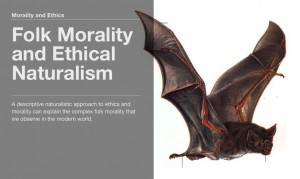![]() Gated from Pinker’s The Better Angels of our Nature, the Dutch experiments concerning the “broken window hypothesis” are illuminating. The “broken window hypothesis” dates to the 1980s when criminologists Wilson and Kelling suggested that broken windows in an abandoned building might signal other vandals that breaking windows is permissible. This theory, though widely disputed among criminologists, informed increased enforcement efforts in the United States in the 1990s that correlated with the amazing reductions in the crime rate that have continued into the current decade.
Gated from Pinker’s The Better Angels of our Nature, the Dutch experiments concerning the “broken window hypothesis” are illuminating. The “broken window hypothesis” dates to the 1980s when criminologists Wilson and Kelling suggested that broken windows in an abandoned building might signal other vandals that breaking windows is permissible. This theory, though widely disputed among criminologists, informed increased enforcement efforts in the United States in the 1990s that correlated with the amazing reductions in the crime rate that have continued into the current decade.
What of the Dutch experiments? When artificial circumstances are established where people can, for instance, litter fliers, people will litter more when they are in an environment already littered or surrounded by buildings covered with graffiti. Small acts of theft also are enhanced by a shady environment.
If our moral sentiments are so heavily influenced by our environment, we don’t need convincing that our moral predispositions are socially influenced, as well. Teenagers and college students are case studies.
But what of positive influences? If graffiti enhances criminality, and a neutral environment is, well, neutral, is it possible that a beautiful, inspiring environment would promote positive morality?
In many cities and towns, artistic murals are applied to high-graffiti areas with the expressed purpose of eliminating graffiti, for example. Can astonishing architecture do similar things? Following the Dutch experimental setup, it would be easy to place fliers on bicycles around art galleries and interesting buildings, then monitor the littering rates. There are obvious problems with this methodology in that the people who live and work in some areas may have educational, class, and other differences with those who traffic other areas that are more prone to littering and graffiti.… Read the rest




